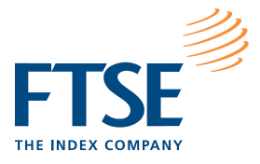The Government has set targets for new-build housing to be zero carbon from 2016 – which could see new homes being 79 per cent cheaper to run.
Research (published by the NHBC Foundation) reveals that new homes built to current regulations could cost 55 per cent less to run than typical 'upgraded' Victorian homes.
It also reveals that 69 per cent of consumers would be happy to pay a premium for an energy efficient home, with younger people leading the way in energy efficiency aspirations.
These findings mean that developers like Linden Homes are turning up the heat when it comes to promoting new build, energy efficient properties.
Linden Homes can help customers at its developments across North East Lincolnshire and Yorkshire reduce energy and save money when they buy one of their stunning new homes.
Steve Woomble, sales director, said: “As part of the Government’s directive and our own responsibility towards the environment, our new homes meet with all the relevant regulations.
“Energy efficient new homes are well insulated and include double-glazing as standard – automatically making them cheaper than many older style homes.
“All new homes are also fitted with a water metre, and studies show that new homes hugely more energy efficient that older homes, so producing lower energy bills.”
Facts (NHBC Foundation)
- A 4-bed detached new home could be 55 per cent cheaper to run (saving £1,312)
- A 3-bed end terrace could be 52 per cent cheaper to run (saving £840)
- A 3-bed mid terrace could be 46 per cent cheaper to run (saving £642)
- A 1-bed ground floor flat could be 47 per cent cheaper to run (saving £426)
- Living in today's new homes could create annual savings of around 55 per cent on gas and electricity spending.
And while you are planning your move to a brand new Linden home, here are some energy-saving tips that could save you money while you wait (source Energy Savings Trust):
- Check your loft insulation is thick enough and in good condition. A depth of 11 inches is recommended, and insulating your loft effectively could say up to £180 a year.
- Bleed radiators to get rid of any air inside which may lead to increased bills if the water can’t heat up effectively.
- Turning the room thermostat down by just one degree can save around £30 a year.
- Insulating a hot water cylinder with a well-fitted jacket could lead to an average £45 a year saving.
- Use energy efficient light bulbs that use less energy and last up to 10 times longer than standard bulbs.
- By fully draught proofing your home (including windows, keyholes, letter boxes and loft hatched) you could save an average of £55.
- Turn off household appliances such as microwaves, TVs, videos, music systems, and computers when not in use, as they continue to use energy when they are left on standby.
- Defrost your fridge frequently and check the door seals.
- Boilers account for around 55 per cent of what is spent on energy bills in a year. Replacing an old boiler with an A-rated energy efficiency condensing boiler and improving heating controls could save an impressive £310 a year.
- If you have a standard shower it will use around 40 per cent of the water required for a bath.
For more energy saving tips visit www.energysavingtrust.co.uk
-ENDS-
For further press information please contact Cetti Long at Media Matters on 01733 371363 or email cetti@mediamatters-pr.co.uk








